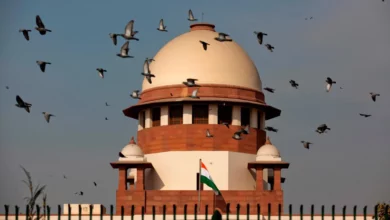The Cairo Administrative Court, headed by Judge Farid Tanagho, said Tuesday it would rule on the possible dissolution of the Muslim Brotherhood on 26 March.
The court is considering a controversial case that accuses the group of operating illegally.
The Brotherhood's legal status is in question since it is not officially registered and was banned by the previous administration.
The plaintiffs claim that although the group has been politically and socially active for 60 years, it has not sought official recognition based on an 2002 law that regulates the work of civil society organizations.
They also argue that the activities of its political arm, the Freedom and Justice Party, are therefore also illegal.
During the Tuesday session, lawyers from both sides battled verbally, with the Brotherhood eventually requesting time to study court documentation and submit further evidence to support its case.
Shehata Mohamed Shehata, a lawyer and director of the Arab Center for Integrity and Transparency, described the Muslim Brotherhood as "masonic,” “illegitimate" and “extremist.” He argued that the group constitutes a serious threat to the country, quoting a former Brotherhood leader Tharwat al-Kharabawy.
He also quoted Justice Minister Ahmed Mekky, who recently said the Muslim Brotherhood’s legal status has not been resolved.
Ahmed Abu Baraka, a Brotherhood leader and one of the group's lawyers, objected to Shehata's statements and said he was offended by the accusations.
Abu Baraka then asked to study documents presented by the plaintiffs as well as an opportunity to submit his own documents.
Meanwhile, former presidential candidate Abdel Moneim Abouel Fotouh said Monday that the Muslim Brotherhood should have legalized its status before the 2011 revolution that toppled former President Hosni Mubarak.
“They had an excuse before the revolution, but I do not know why they haven’t taken that step afterwards,” Abouel Fotouh, a former Brotherhood leader, said in an interview with the CBC channel.
Abouel Fotouh broke with the group after the revolution, after previously defying the Brotherhood's earlier decision not to field a presidential candidate for the 2012 elections.
The former member told media presenter Emad Adib that he had always rejected the idea of forming a political arm of the Brotherhood, arguing that the group should have maintained its primary preaching role.
“If any of its members would like to practice politics, [they] should do that away from the Muslim Brotherhood,” he added.
Earlier news reports had said that the Brotherhood would seek legal status after Parliamentary approval of a draft law on civil society organizations prepared by the Ministry of Insurance and Social Affairs.
The draft drew criticisms by NGOs and activists for potentially restricting civil society activities.




